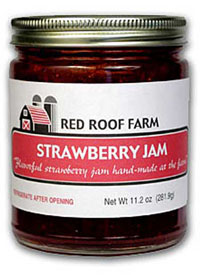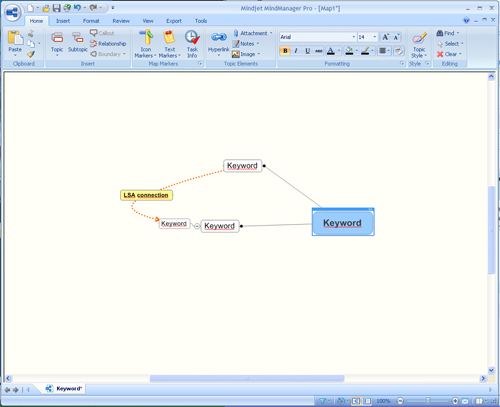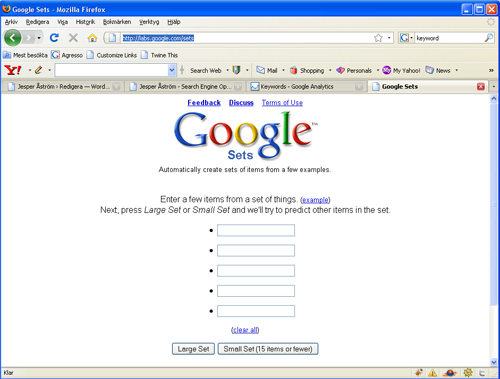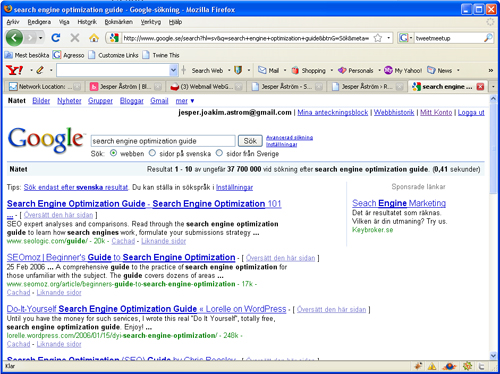I will now continue my SEO 101 guide with explaining where to put the keywords for a particular page.
Just as you arrange your ordinary word document that is longer than just a page, you construct an index so that all people reading your document will have an easy overview of what they are reading. On a website this index is called the sitemap. (Now some of you think… “Isn’t that the start page??” NO IDIOT… I will deal with the start page later… but keep in mind that you do NOT… I repeat… do NOT put all the links to all your content on your start page)
In the sitemap you should put links to all the pages of your website. As you want your reader, google and all other interested to know where they end up you use the “jam jar method” to lable your links and the pages where the people will end up.

Jam Jar Method
Just as you don’t put “Sweet and sticky” on a jar of strawberry jam (because no one knows what’s in it) you don’t put a slogan or something catchy in a link to a page. You simply say what’s on the page or in the jar. As for the case of the Jam jar you would write “Strawberry Jam”, as for a web page explaining the recepie for strawberry jam, you would give it the name “Recepie – Strawberry Jam” or “Recepie for strawberry jam”.
Many people put catchy phrases in their links, or even worse, put “read more” in their links leading to pages. This method sucks as it doesn’t give the reader any notion on where he or she is going to end up.
On-Page keyword optimization
Once you are on the page there are some elements that search engines as well as people find more important than others.
The title
First of all it is the title of the page. This is what is seen as the link from Google. It is also what is seen in the field on the very top of your browser. The title is defined in the head meta text of the page. The tag you use to define it is <title>Your title</title>.




